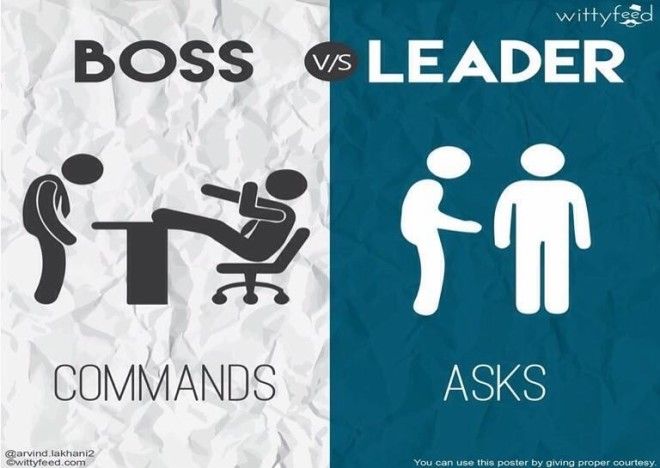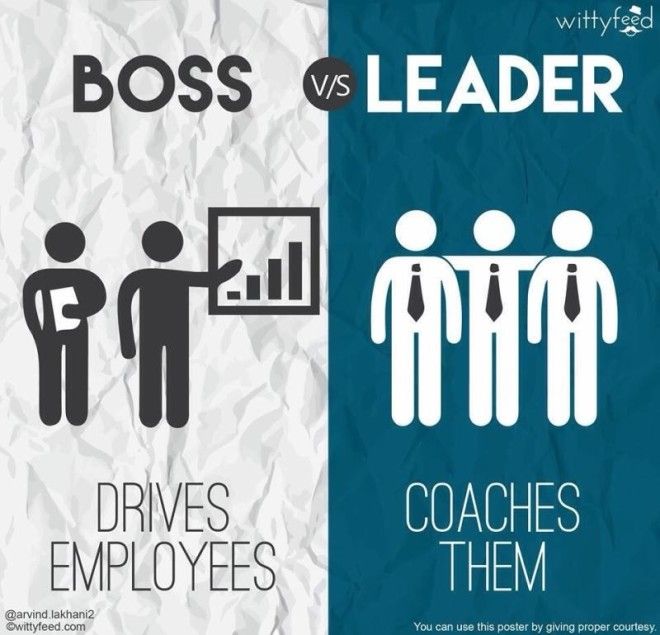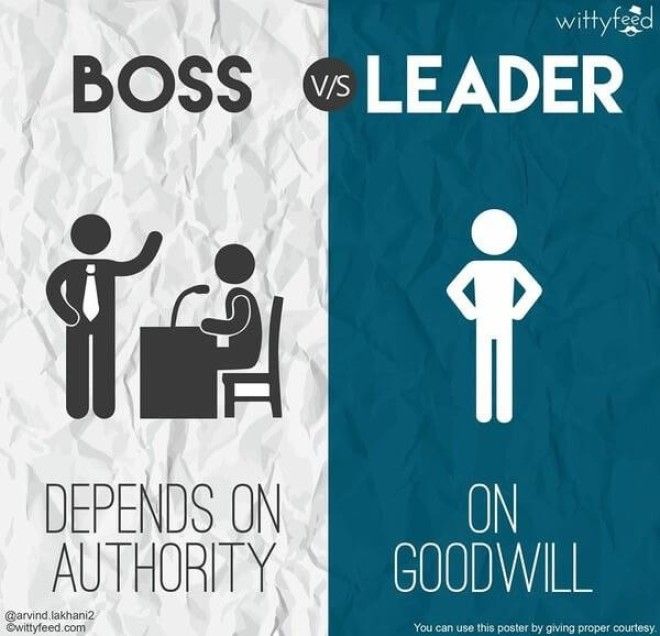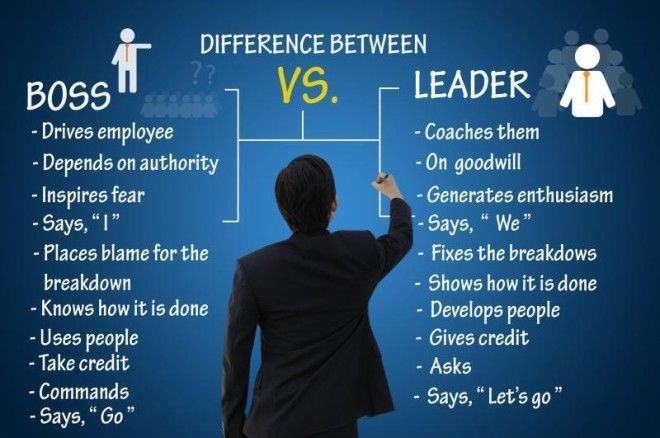By the same token, great workers, players, etc, don’t necessarily make great leaders. Seemingly all too often, bosses are chosen for qualities other than their ability to lead, and it is leadership that truly drives a successful team. What this comes down to is the age old difference – Boss versus Leader.

A boss usually likes to be called “Boss,” while those that do the calling invariably mean the word in the pejorative sense. Boss is all too often synonymous with bossing and bossy. Bosses often rise through the ranks, or get hired, for exactly the wrong reason – They usually know the job, and know how “it should be done,” but their vision of the right way is a narrow view, and more importantly, they do not know how to truly lead.

Bossing is defined by a litany of traits workers do not care for. A bossed organization is an authority based, negatively reinforced regime.
Bossed employees are never right – if they do well, the boss takes credit – If they screw up, they get the blame. Bosses use the word ‘I’ a lot – I know, I want, I am – And as the popular adage states, there’s no I in team. Bosses employ fear as a control tool; they never ask or suggest, they command. Bossing is still prevalent in many industries, professions, and countries, even in the kinder and gentler twenty first century. Even legendary, resilient companies can be brought down by bossing – Google the CEO of Gibson Guitars, Henry Juszkiewicz, and delve into what you find – That’ll illustrate bossing, and why it’s a bad thing, in spades.

Leaders, on the other hand, get it: They understand teamwork and what drives success. Leadership is harnessing creativity, sharing power, decision making, success and failure alike, all toward a successful and stable organization. There is no job a leader won’t do, no matter how small or nasty. Leaders inspire by example, by consistent good will and genuine care for the wellbeing of every team member. Leaders employ the proven method for group learning – know the task well, demonstrate, coach, and guide. Leaders provide an environment that makes team members want to work and succeed in, and to encourage each other in. Leaders give credit where credit is due, accept responsibility when things go wrong, and use both those tools liberally and consistently. Leaders want and expect to identify, develop, and promote more great leaders; by doing so, they generate good will, enthusiasm, and a lasting sense of loyalty. Google ‘is Warren Buffett a good leader‘, and read those results – You’ll quickly get the picture.

Life is too short and to precious to allow negativity to rule. We are never stuck in a place, profession, company, or pursuit. We are always free to chose, and we mustn’t ever forget that – it’s incumbent upon each of us to know how we’re doing, and to strive to be a leader, and not a boss. Major League Baseball Pitcher Jamie Moyer pitched for 25 years in the major leagues. At the end of every season, he would approach his pitching coach, Manager, and General Manager and say “Tell me how I did this year, and be honest.” He’d listen, take heed, and use the critiques as his guide for what to do in the off season, with the intention of coming back next year as a better player.
That’s a leader, pure and simple.

